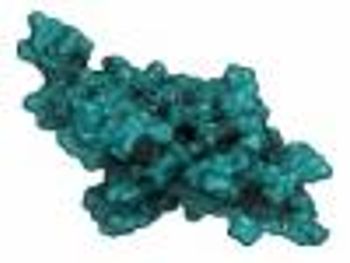
Top news of the week in oncology and cancer drug development.

New data indicates men of African American and Hispanic descent are less likely to undergo therapy for prostate cancer compared with Caucasian men.

Targeting the uracil-DNA glycosylase enzyme may help treat certain types of non-Hodgkin’s lymphoma.

Top news of the day from across the health care landscape.

Efficacy and safety data shows encouraging results for rucaparib in BRCA-mutation ovarian cancer.

Obstacles exist in making testing and treatment for hepatitis C routine practice in prison.

In case you missed it, here's the hottest news in pharmacy this week:

Treating financial toxicity in cancer patients similarly to other side effects could improve outcomes.

Lartruvo with doxorubicin significantly improves overall survival in patients with soft tissue sarcoma.

Relapsed metastatic head-and-neck cancer patients who received nivolumab experienced a reduction in symptoms.

Inhibiting Ran-GTP was associated with reversing and preventing treatment-resistant cancers.

Tecentriq is the first anti-PDL1 cancer immunotherapy approved for metastatic non-small cell lung cancer.

Major pathological tumor regression was experienced by 40% of patients receiving neoadjuvant immunotherapy before resection.

Tecentriq provides new option for patients with previously treated metastatic lung cancer.

Nivolumab prior to tumor resection found safe in patients with early non-small cell lung cancer.

Tecentriq is the first anti-PDL1 cancer immunotherapy approved for metastatic non-small cell lung cancer.

Niraparib significantly improved outcomes of platinum-sensitive recurrent ovarian cancer in landmark trial.

Atezolizumab is a PD-L1 inhibitor that uses the immune system to fight cancer.

A unique pattern of motion by repair proteins allows them to rapidly scan long DNA and flag repair machinery in condition that can lead to skin cancer.

Despite widespread criticism, the United States may be paying less for hepatitis c virus drugs than other developed countries.

Patients with memory dysfunctions or depression may be less likely maintain adherence to oral oncoltyics.

Top news of the week from The American Journal of Pharmacy Benefits.

Top news of the week in oncology, and cancer drug development.

Intervention programs may reduce the consumption of sugar, particularly in young males and cervical cancer survivors.

Results from a phase 3 trial demonstrates that nintedanib improved progression-free survival, but not overall survival in colon cancer patients.

Top news of the day from across the health care landscape.

Atezolizumab is a PD-L1 inhibitor designed to use the body’s own immune system to fight cancer.

Atezolizumab demonstrated significant improvement in survival compared with docetaxel in individuals with non-small cell lung cancer.

Premenopausal, overweight women have a decreased risk of breast cancer, while postmenopausal women have an increased risk.

Top news of the day from across the health care landscape.